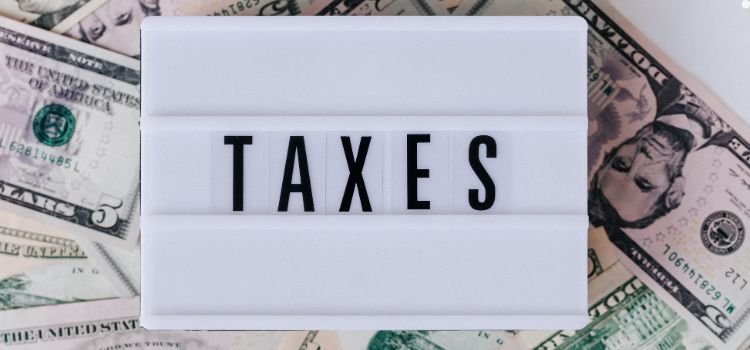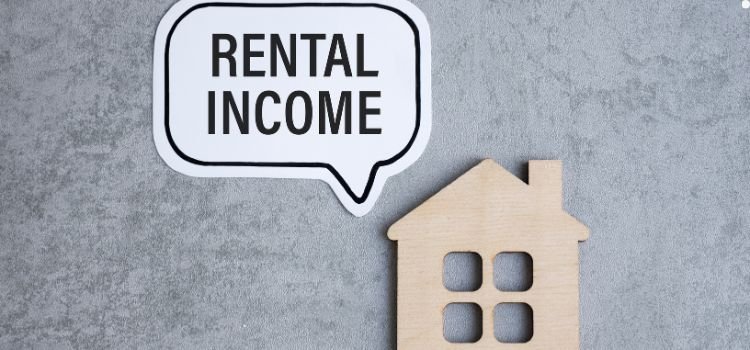If you own property or are thinking of investing in one, the difference between Capital Gains Tax (CGT) and Income Tax might be one of the most expensive mistakes you ever make.
Many property investors assume that profits from selling and profits from renting are taxed the same way, but that’s not true. Whether you’re selling a buy‑to‑let, disposing of a second home, or earning rental income, how your profits are taxed can differ dramatically. Overpaying by just a few percentage points can cost you thousands.
In this article, you’ll learn exactly what CGT is, how it works for property sales, how income tax applies to rental income, and how to plan smarter so you keep more of your gains.
By the end, you’ll understand when each tax kicks in, how to calculate them, and what strategies you can use to legally reduce your tax burden.
Read on to clarify the rules, avoid costly surprises, and take control of your property tax planning.

What Is Capital Gains Tax (CGT) on UK Property Investments?
When you sell, gift, or transfer a property that’s not your main home, any increase in its value, the “gain”, is often liable to Capital Gains Tax (CGT).
Here’s how it works for UK property:
- When CGT applies:
You pay CGT when you dispose of property that is not your principal residence (for example, buy‑to‑lets, second homes, or land). Even if you lived there at some point and then rented it out, you might pay tax on the portion of the gain attributable to the letting period. - Rates and thresholds:
As of 6 April 2025, gains on residential property are taxed at 18% for gains that fall within your basic income tax band, and 24% for gains that exceed it. You also benefit from an annual exempt amount (also called the CGT allowance), currently £3,000 (for 2024/25) — meaning gains up to that amount are tax‑free. - How the tax is calculated:
- Special rules & reporting deadlines:
Since 2021, if you sell a property that is not your main residence, you must report and pay CGT within 60 days of completion.
Also, reliefs such as Private Residence Relief (PRR) and Lettings Relief may reduce the gain you’re taxed on, especially if the property was once your home.
- Example (simplified):
Suppose you bought a buy‑to‑let for £200,000, spent £20,000 on qualifying improvements, and later sold it for £260,000. Your gain = £260,000 − (£200,000 + £20,000) = £40,000.
After the annual exempt £3,000, £37,000 is subject to CGT. Depending on your other taxable income, some may be taxed at 18%, the rest at 24%.
Understanding CGT is vital because mistakenly treating a sale as rental income (or vice versa) can lead to higher tax bills or missed planning opportunities.
What Is Income Tax on Rental Income for UK Landlords?
While CGT deals with gains on disposal, income tax applies to the profits you make from renting out property. This is an ongoing tax charged each tax year on your rental business.
Here’s the deep dive:
What counts as rental income:
Rental income includes rent from tenants, plus any additional charges you make (e.g. for heating, cleaning, utilities) if they are related to the lease.
The first £1,000 of property income in the year is tax‑free under the “property allowance” (if you don’t claim expenses). If your income exceeds £1,000, you’ll normally need to file a self‑assessment.
Deductible expenses and net profit:
To work out how much of your rental income is taxable, you subtract allowable expenses, costs wholly and exclusively incurred to rent, manage, maintain and repair the property. Examples include insurance, agent fees, maintenance, utilities (if landlord pays), and council tax (if landlord pays).
Note: improvements (capital works) are not deductible here; they feed into CGT instead.
How your income tax rate is applied:
The net rental profit is added to your other income (salary, dividends, etc.). It is taxed according to the income tax bands (20%, 40%, 45%).
If your total income (including rental profit) pushes you into the higher rate band, part of your rental profit will be taxed at higher rates.
Mortgage interest and relief changes:
For buy‑to-let mortgages, mortgage interest is not fully deductible as an expense. Instead, you get a 20% tax credit on mortgage interest paid, regardless of your tax rate.
Losses and carry forward:
If your expenses exceed rental income in a year, you generate a loss. You can carry forward that loss against future rental profits (but not against general income).
Example (simplified):
Suppose your property brings in £15,000 rent per year, and your allowable expenses amount to £5,000. Your net profit is £10,000.
If that profit is added to your salary and pushes you into a higher tax band, you might pay 40% on a portion of that £10,000.
If the mortgage interest was £4,000, you can claim a 20% tax credit on that, i.e. £800, reducing your tax liability accordingly.
By knowing how income tax is applied to rental profits, and carefully tracking expenses, you can manage your cash flow, plan paying tax, and avoid nasty surprises at filing time.

Key Differences Between CGT and Income Tax for Property Investors
Now that we’ve explored both Capital Gains Tax (CGT) and Income Tax separately, it’s important to understand the core differences between them so you can avoid mixing them up and plan your tax strategy accordingly.
Purpose of the Tax
The main difference lies in when the tax applies:
- Income Tax is charged on ongoing profits — mainly your rental income from letting out property.
- CGT is only triggered when you sell, gift or dispose of a property that has increased in value.
This distinction is key because it affects the timing of when tax is due and the type of planning you can do to reduce it.
Tax Rates
- Income Tax rates are based on your total income — rental profits get added to your salary, dividends, or self-employed income. So if you’re already in a higher tax band, you could pay 40% or even 45%.
- CGT on residential property is currently taxed at 18% (basic rate) or 24% (higher rate), often lower than income tax rates.
This often surprises property investors, as CGT can be more favourable in some cases.
Allowances and Reliefs
- Income from rent benefits from a £1,000 property allowance, plus deductible expenses like repairs and agent fees.
- CGT has a £3,000 annual exempt amount, but also features reliefs like Private Residence Relief or Lettings Relief, depending on how the property was used over time.
Each system has its own deductions, but they can’t be used interchangeably.
Tax Reporting
- Income tax is reported annually via Self Assessment.
- CGT must be reported within 60 days of completing the sale of a residential property, a deadline many landlords miss.
So timing matters, especially if you’re planning a disposal close to the tax year-end.
How to Minimise CGT and Income Tax as a UK Property Investor
Reducing your tax bill isn’t about dodging responsibilities; it’s about understanding the rules and using them to your advantage.
Here are smart and legal ways to minimise both CGT and Income Tax as a landlord or investor.
Tips to Reduce Income Tax on Rental Income
- Track Every Expense
Only profits are taxed, not the gross rental income. So keep detailed records of every legitimate cost: letting agent fees, repairs, insurance, council tax (if paid by landlord), and utility bills. - Claim Capital Allowances (if applicable)
If you run a furnished holiday let (FHL), you may be able to claim capital allowances on furniture and equipment, which can be quite generous compared to standard buy-to-lets. - Use the Property Allowance Wisely
If you have a small amount of property income (under £1,000), you may be able to avoid the hassle of Self Assessment completely using the £1,000 property income allowance. - Structure Ownership with a Spouse or Civil Partner
Shifting rental income to a spouse in a lower tax bracket can reduce your total tax burden, but this must be done legally and documented properly. (hmrc.gov.uk) - Use Limited Company Structures (Where Applicable)
Many landlords now purchase property through a limited company to benefit from corporation tax rates (currently 25%), which can be lower than higher personal income tax rates. But be aware, company profits face double taxation when withdrawing dividends.
Tips to Reduce Capital Gains Tax
- Use the Annual Exempt Amount
Plan sales to use your £3,000 CGT exemption each year. If selling multiple properties, stagger them across tax years. - Offset Capital Losses
If you’ve sold other assets (shares, crypto, etc.) at a loss, these can often be offset against gains from property. - Transfer to a Spouse Before Sale
You can transfer property to a spouse tax-free and then sell it jointly. This doubles the CGT allowance and spreads gains across both income tax bands. - Consider Principal Residence Relief
If the property was once your main home, you may qualify for relief on the portion of time you lived there, plus an additional final 9 months exemption. (gov.uk) - Incorporate Your Portfolio (Advanced Strategy)
In some cases, transferring a rental portfolio into a company can defer CGT, though this is complex and usually requires professional advice.
Pro tip: Keeping good records, including purchase prices, receipts for improvements, and rental income, makes all of this far easier when it comes time to file.
When to Work with a Chartered Accountant for Property Tax Advice
You might be wondering, can’t you just manage all this with Google and a spreadsheet?
Maybe. But here’s when you should definitely consider bringing in an expert.

You Own Multiple Properties or a Growing Portfolio
With more properties comes more complexity, more expenses to track, more forms to fill, and more opportunities to get things wrong. An accountant can help you optimise across all properties, not just one.
You’re Selling or Transferring Property
Timing and strategy matter most when disposing of property. A good tax adviser can help you reduce CGT, time disposals correctly, and ensure you’re reporting within the tight 60-day HMRC window.
You’re Considering Incorporation
Incorporating your property business is a big decision with pros and cons that depend heavily on your goals and income. A chartered accountant can run detailed projections and model your tax exposure under different structures.
You’re New to Letting
First-time landlords often miss out on deductions, file late returns, or fail to register with HMRC in time. Getting it right from the start can save years of headaches and interest and penalties.
You Want Long-Term Tax Planning
Property is a long game. Whether you’re building a pension through rental income, planning for retirement, or passing properties to your children, your tax strategy should evolve with your life stage. A seasoned accountant helps you future-proof your wealth.
Conclusion
Whether it’s the ongoing Income Tax on your rental income or the Capital Gains Tax due when you sell, understanding the differences between these two taxes is key to making informed financial decisions.
As we’ve explored, both taxes have their quirks, timelines, and planning opportunities. The good news? With the right guidance, you can reduce what you owe, stay compliant with HMRC, and keep more of your hard-earned rental profits or investment gains.
If you’re a UK landlord or property investor, the best time to get proactive about your tax planning is now. Don’t wait until the end of the tax year (or worse, until a sale goes through) to find out what you should have done.
At Monarc, we work with smart investors like you every day, helping you optimise your tax position, structure your property portfolio more efficiently, and sleep better knowing your finances are in expert hands.
Ready to get clarity on your property taxes?
Book a free discovery call with our team today, and let’s take the guesswork out of your property finances.

Meet Mo
Mo is experienced in dealing with clients from start-ups and expanding businesses for UK property investors in the retail and hospitality sector. He also brings his extensive experience in setting up and managing hotels, cafes, restaurants and rental properties across the UK to help clients achieve their business goals and succeed.
He regularly shares his knowledge and best advice here on his blog and on other channels such as LinkedIn.
Book a call today to learn more about what Mo and Monarc Finance can do for you.

